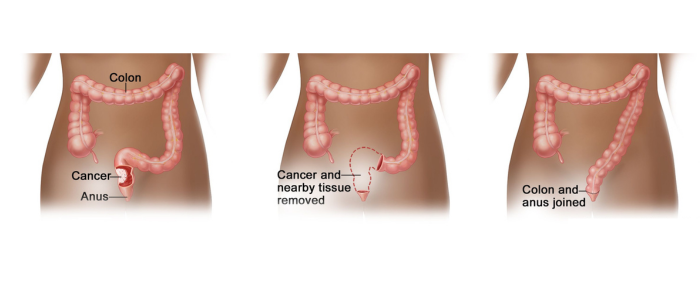
Rectal resection removes part or all of the rectum to treat rectal cancer, severe diverticulitis, or inflammatory bowel disease. Symptoms include rectal bleeding, pelvic pain, or changes in bowel habits. The procedure, often laparoscopic, preserves sphincter function when possible to avoid a permanent colostomy. Low anterior resection reconnects the colon to the anus, while abdominoperineal resection requires a colostomy. Risks include anastomotic leakage, infection, or incontinence. Recovery takes weeks, with dietary adjustments and pelvic floor therapy to restore function. Follow-ups monitor for cancer recurrence or complications. The minimally invasive approach reduces pain and hospital stays, improving outcomes for early-stage cancers. Patients may need chemotherapy or radiation. Long-term care focuses on bowel function and preventing recurrence, ensuring better quality of life.
At the heart of compassionate and expert surgical care stands Dr. Lakshit Tomar, a distinguished Surgical Gastroenterologist dedicated to improving the lives of his patients. With years of experience in advanced wound care, ostomy management, and complex gastrointestinal surgeries, Dr. Tomar blends surgical precision with a deep commitment to patient well-being.
Copyright © 2025 | Powered by [GLS IT Solutions]